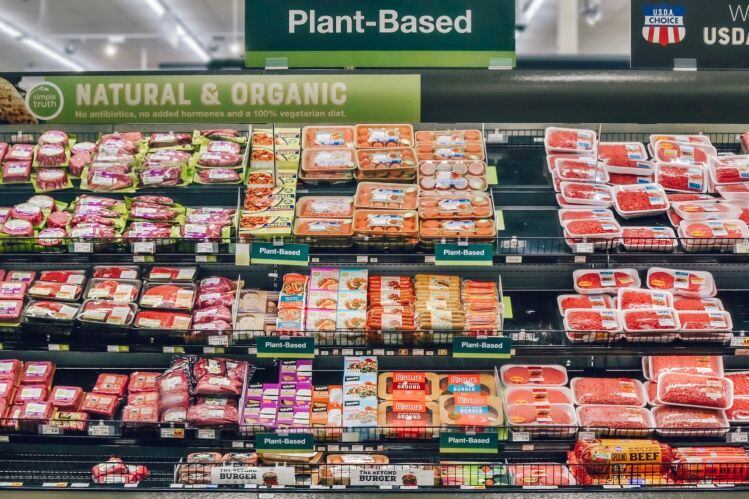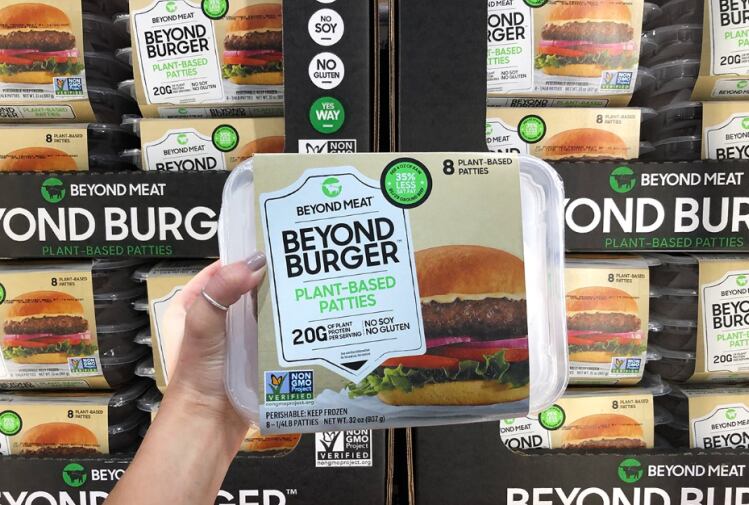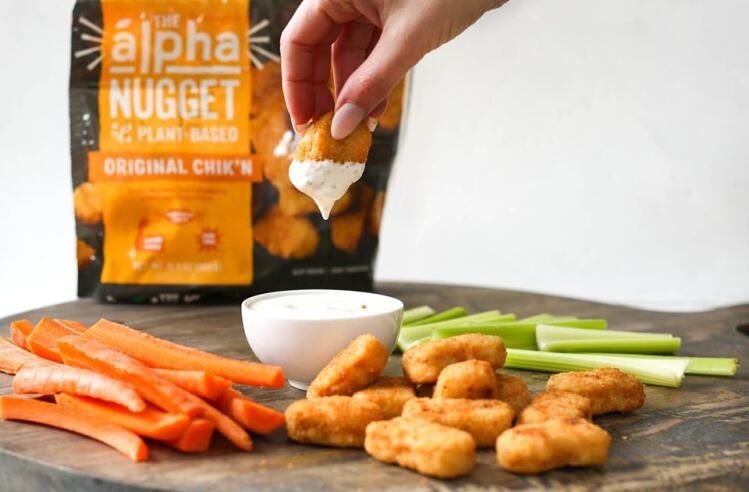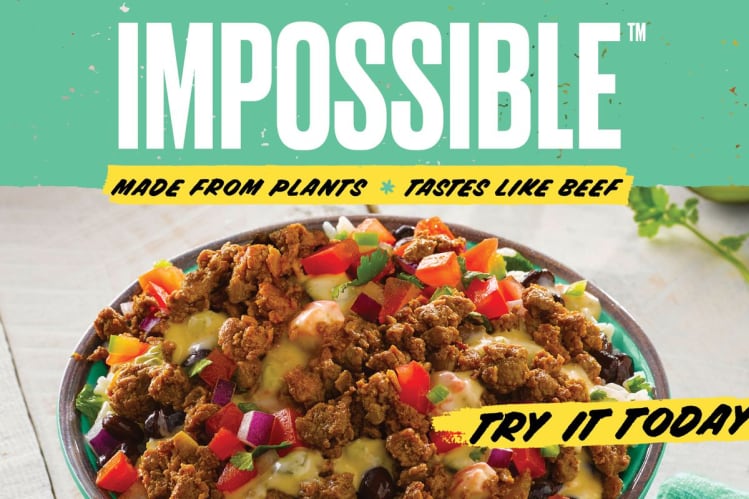One of a new breed of synthetic biology companies using microbes as microscopic protein factories, and powered by Gingko Bioworks' bio-engineering platform, Motif FoodWorks reads the DNA of key animal and plant proteins, writes it [prints DNA sequences], and places it in an appropriate micro-organism that expresses the target protein in a fermentation tank.
Rather than replacing the core proteins in plant-based meats (eg. extruded soy, pea, wheat protein), however, Motif is working on ingredients that would be added at low inclusion rates to have a big impact on the eating experience, said Dr Leonard.
“We’re talking about high impact ingredients that would comprise just a couple percent of the overall formulation but really provide a better experience in terms of texture and juiciness in something like a plant-based burger, for example.”
Hybrid products?
Similarly, Motif could contribute a small amount of ‘real’ dairy protein (made via microbes, not cows) to a plant-based cheese, contributing the functional qualities (melting, stretchiness, elasticity) of milk proteins without making the entire product from them (in contrast to startups such as New Culture, which is making cheese entirely from dairy proteins made via microbial fermentation), he said.
“We’re not looking to replace commodity animal proteins at that scale. Our play is more about helping plant-based manufacturers that are using plant-based proteins right now improve their functionality.”
But how would you market such ‘hybrid’ products – which contain plant-based proteins but also ‘animal’ proteins (eg. milk proteins) that were made by microbes, not animals?
It’s a challenge that several players in the emerging microbial fermentation space have been wrestling with, said Dr Leonard: “We’re actively discussing with regulatory authorities about how do we talk about these products in a way that’s transparent but also makes sense to consumers?”
What is synthetic biology? Gingko Bioworks (strapline: biology by design) co-founder Jason Kelly likens synthetic biology to computer programming, only with genetic sequences. DNA is effectively serving as a computer code (which can be now be printed surprisingly cheaply) that can be inserted into microorganisms such as yeast and bacteria so they express proteins, sweeteners, flavors, cannabinoids such as CBD, or basically whatever you have ‘coded’ or ‘instructed’ them to produce.
In vitro oral processing
When it comes to plant-based meat, texture is just as important as flavor, said Dr Leonard, who said Motif FoodWorks has recently teamed up with the University of Queensland on what it believes is the first research project to deploy in vitro oral processing techniques to meat analogs.
Put simply, said Leonard, while in vivo testing with trained sensory panelists can provide valuable feedback (‘Burger A is more succulent/chewy/juicy than burger B’), it’s expensive, and only tells you so much.
In vitro oral processing – using novel lab testing techniques developed by Professor Jason Stokes and Dr. Heather Smyth at the University of Queensland to assess the mouthfeel qualities of foods and link these back to sensory perception – can deliver insights that human testers cannot, claimed Leonard.
‘The texture and flavor gaps in plant-based meat products are pretty consistent’
He added: “Consumer feedback is often that the chewing experience for plant-based burgers isn’t what they expect, or they don’t have the same springiness and elasticity. The mouthfeel and coating isn’t the same, and they’re not as juicy or flavorful. These products have come a long, long way, but our research shows that the texture and flavor gaps in these products are pretty consistent.”
The project with the University of Queensland will use “analytical tools and instruments that record the forces involved in compressing food [ie. what happens when you bite into and then chew a plant-based burger], and will analyze the surface properties when food coats a surface so we can describe the surface tension and the behavior of the film forming interface in the mouth and we can talk about those in quantitative terms, in physics terms,” he said.
High impact ingredients
Some of the equipment being deployed is standard for textural analysis, but Professor Stokes’ lab has also developed bespoke tools designed to mimic how food is processed in the mouth, he said.
“If you know the physics of how meat analogs perform in an oral processing environment, you can then design ingredients that deliver against those quantitative attributes.”
Which is where Motif FoodWorks fits in, he said.
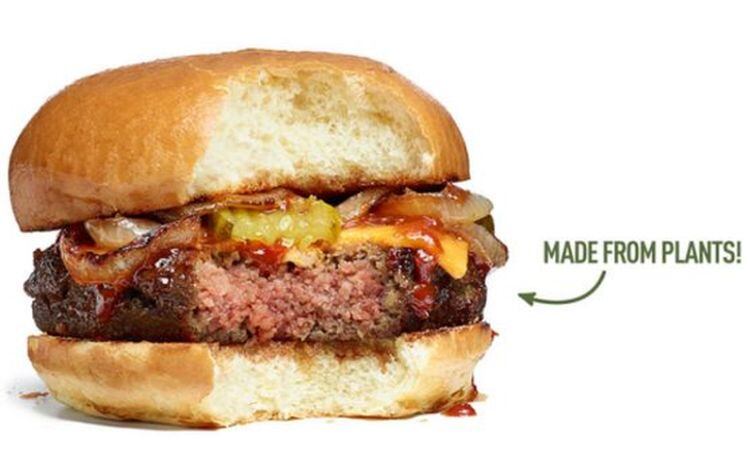
“The ingredients we’re working on will improve the texture of plant-based meat and we also hope the overall performance and juiciness of burgers, for example, but we’re talking about high impact ingredients that would comprise just a couple percent of the overall formulation but really provide a better experience in terms of textures.”
‘We’re looking at new ways to improve the interaction of fat with the protein matrix’
While Motif FoodWorks is focused on proteins, it’s also very interested in fat technology, said Dr Leonard. “The experience of plant-based meat products is all about the interplay between the proteins, the fats and the water, and you have to get the fat system right.”
Asked whether Motif was looking to produce fats or to produce ingredients that would help plant-based fats such as coconut oil perform more effectively in a formulation, he said: “We’re looking at new ways to improve the interaction of fat with the protein matrix.

“For example, when you cook plant-based burgers made with coconut oil, you have to be very careful because the fat can leak out and will not be retained in the burger the way it is in a conventional animal burger, so we’re interested in tools that can help improve the way fats perform in those matrixes, and most major plant-based burger manufacturers will say that’s a major problem they are trying to solve: how can they make the fat perform better in their formulations?”
Cleaner labels for ‘highly processed’ plant-based meats?
Right now, he noted, all the leading plant-based meat brands including Impossible Foods and Beyond Meat use methyl cellulose to help emulsify fat in their ground plant-based meat matrixes as it can help stabilize the fat and protein interface and it also holds water, making for more juicy and succulent products.
However, many brands would like to remove it as it's not something consumers have in their kitchen cupboards at home and is frequently cited as evidence of the 'highly processed' nature of some plant-based meat products, said Leonard.
“It performs really well, but it’s not very label friendly; consumers don’t know what it is.”
It’s too early to say whether Motif Food Works’ ingredients could replace methyl cellulose in plant-based meat formulations, but the company is working on ingredients that both improve functionality and potentially clean up labels, he said.
The timetable
The first proteins from Motif FoodWorks’ fermentation-based food ingredient platform will be ready for launch in early 2021, with samples going out into the marketplace this year, said Leonard.
“Long term you may want to engineer functionality [with novel, new-to-the-world proteins] but in the short term we’re most interested in impacting plant-based meat and plant-based dairy applications by contributing proteins that are already in use, but we’re not talking about commodity proteins [for example, there are proteins in eggs and milk with unique functional properties which have not been commercialized individually before].
“We’re very interested in understanding these specific components that may have novel functionality.”

